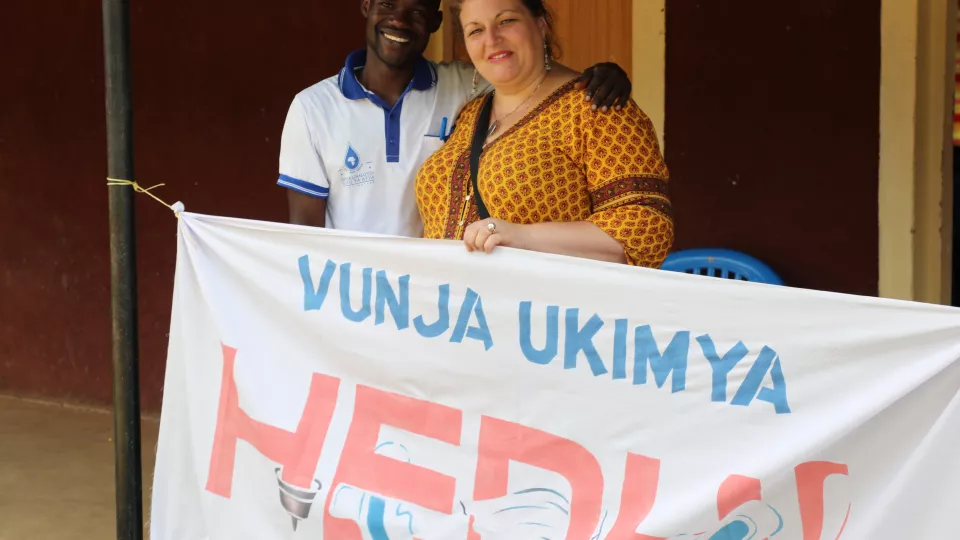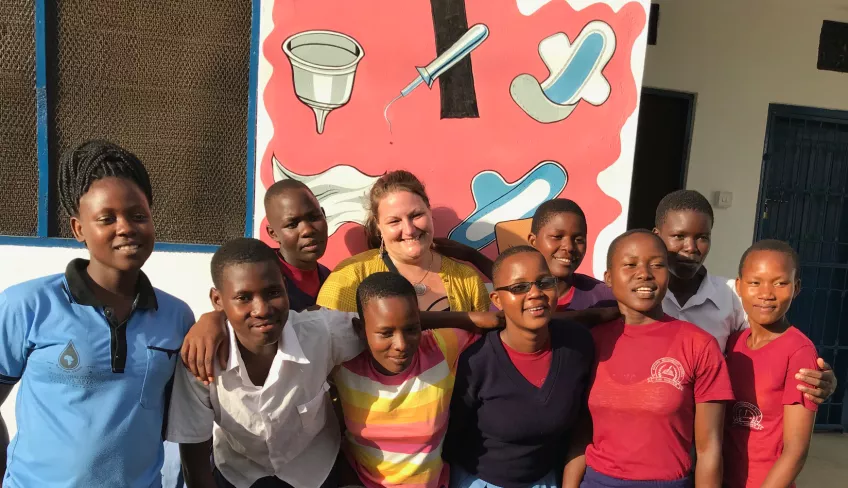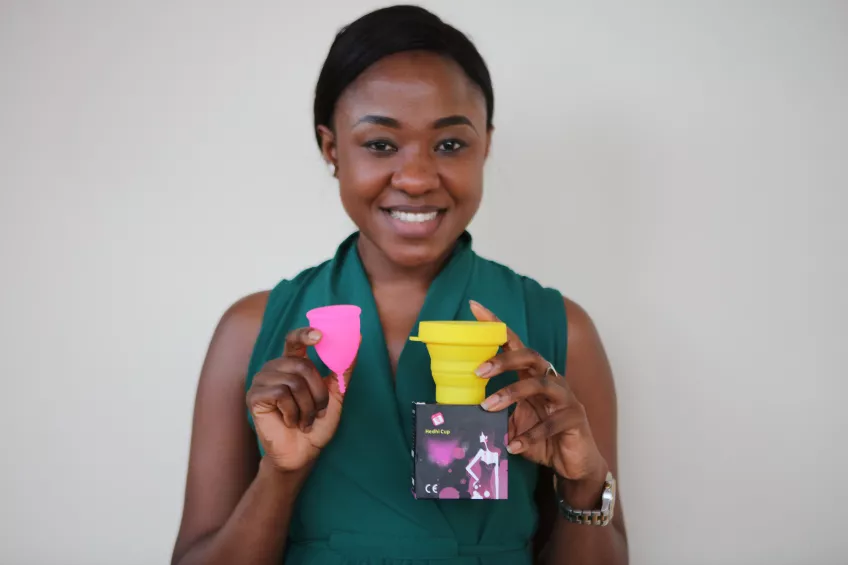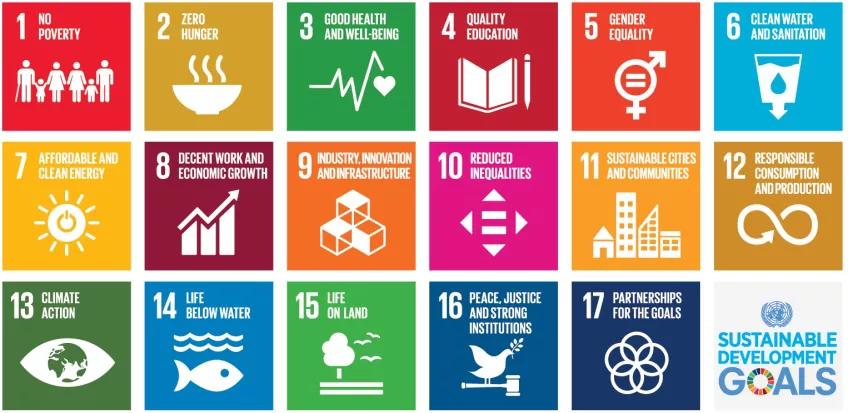How was it to go back and meet the participants?
It was fantastic to come back and meet the girls and see how much more confident they are now. It shows that a small thing such as a menstrual cup can really make a huge impact on girls’ life and health. The girls say that now they are more confident, less worried about managing their menstruation, and less scared of leakage or smelling, which makes them more focused in school and more mobile.
Why was it important for you to go back to the place where the study was done?
I wanted to see what long term impact the menstrual cup has had on the girls in the study. I also felt that it was important to give back to the community where the study was done and help educate and raise awareness about menstruation in order to break the taboos about menstruation - which is key in order to improve Menstrual Health Management.
Why did you do a film about your research?
It was me and my research colleague Ann Åkerman who decided to make a film about my research since we believe it is a good way to communicate a complex and taboo issue such as menstruation. Ann is a fantastic photographer so I also think her images have the ability to make the research more tangible and reach out to a broader audience outside academia.
We have made two versions of the film, one in Kiswahili, which we showed for the local community in Shirati, and an English version which we will disseminate more widely.
What is the film about?
The film, called ”Break the Silence”, gives you a glimpse of what the challenges of having menstruation looks like for many girls in rural areas of Sub-Saharan Africa and how we must improve Menstrual Health Management in order to achieve many of the sustainable development goals.
Do you see any improvements in menstrual health management in Tanzania today?
There is still a lot to be done to improve and make Menstrual Health Management in Tanzania and across Africa sustainable but we’re seeing improvements little by little, both in attitudes, education and with new and improved menstrual products. When we started this study, the menstrual cup wasn’t commercially available in Tanzania but recently I met with an incredibly brave young female entreprenur who just launched the menstrual cup onto the Tanzanian market. This will be an important step towards sustainable menstrual health management in Tanzania, which can improve the everyday life for many Tanzanian girls and women, as well as minimising waste. It is really inspiring to see how Flora has built up her company Anuflo industries Ltd in just two years, and that she, as a local business woman, is the first one to get the commercial rights to sell the menstrual cup in Tanzania. This shows that the future is bright and it will hopefully also make my work as a researcher on MHM easier since the cups will be available in Tanzania.
What are your future plans for your research on Menstrual Health Management?
This spring we’re starting a new study on menstrual cups with women, instead of adolescent girls, with focus on health impacts, waste management issues and economic empowerment. I will also continue coordinating the capacity building programme SUSTAIN at the University of Dar Es Salaam, as well as doing policy work on MHM in Tanzania as part of the Tanzania National Task force on Menstrual Health Management.



